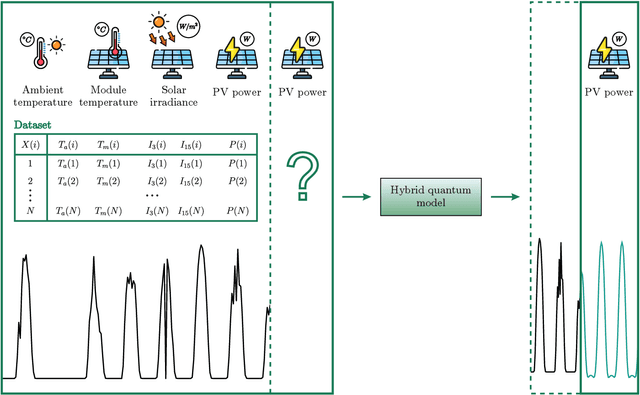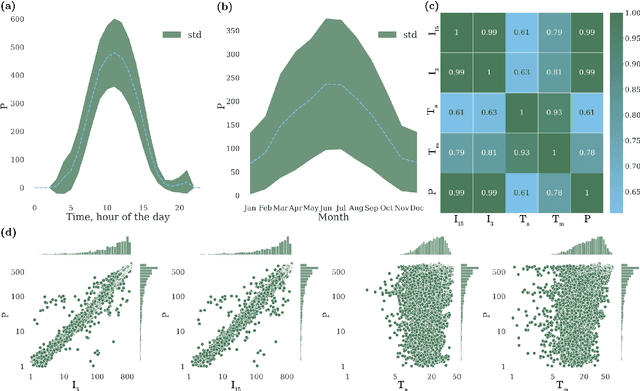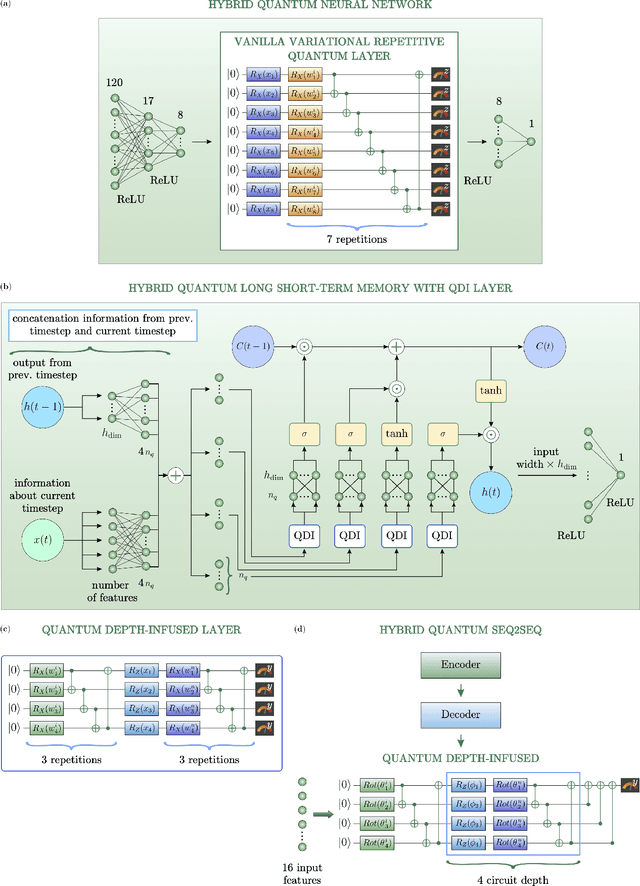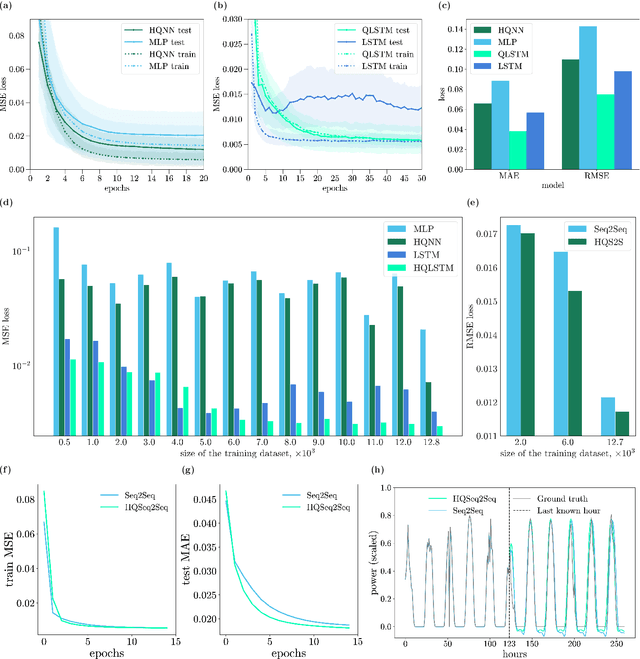Christopher Mansell
Photovoltaic power forecasting using quantum machine learning
Dec 27, 2023



Abstract:Predicting solar panel power output is crucial for advancing the energy transition but is complicated by the variable and non-linear nature of solar energy. This is influenced by numerous meteorological factors, geographical positioning, and photovoltaic cell properties, posing significant challenges to forecasting accuracy and grid stability. Our study introduces a suite of solutions centered around hybrid quantum neural networks designed to tackle these complexities. The first proposed model, the Hybrid Quantum Long Short-Term Memory, surpasses all tested models by over 40% lower mean absolute and mean squared errors. The second proposed model, Hybrid Quantum Sequence-to-Sequence neural network, once trained, predicts photovoltaic power with 16% lower mean absolute error for arbitrary time intervals without the need for prior meteorological data, highlighting its versatility. Moreover, our hybrid models perform better even when trained on limited datasets, underlining their potential utility in data-scarce scenarios. These findings represent a stride towards resolving time series prediction challenges in energy power forecasting through hybrid quantum models, showcasing the transformative potential of quantum machine learning in catalyzing the renewable energy transition.
Hybrid quantum image classification and federated learning for hepatic steatosis diagnosis
Nov 04, 2023



Abstract:With the maturity achieved by deep learning techniques, intelligent systems that can assist physicians in the daily interpretation of clinical images can play a very important role. In addition, quantum techniques applied to deep learning can enhance this performance, and federated learning techniques can realize privacy-friendly collaborative learning among different participants, solving privacy issues due to the use of sensitive data and reducing the number of data to be collected for each individual participant. We present in this study a hybrid quantum neural network that can be used to quantify non-alcoholic liver steatosis and could be useful in the diagnostic process to determine a liver's suitability for transplantation; at the same time, we propose a federated learning approach based on a classical deep learning solution to solve the same problem, but using a reduced data set in each part. The liver steatosis image classification accuracy of the hybrid quantum neural network, the hybrid quantum ResNet model, consisted of 5 qubits and more than 100 variational gates, reaches 97%, which is 1.8% higher than its classical counterpart, ResNet. Crucially, that even with a reduced dataset, our hybrid approach consistently outperformed its classical counterpart, indicating superior generalization and less potential for overfitting in medical applications. In addition, a federated approach with multiple clients, up to 32, despite the lower accuracy, but still higher than 90%, would allow using, for each participant, a very small dataset, i.e., up to one-thirtieth. Our work, based over real-word clinical data can be regarded as a scalable and collaborative starting point, could thus fulfill the need for an effective and reliable computer-assisted system that facilitates the daily diagnostic work of the clinical pathologist.
 Add to Chrome
Add to Chrome Add to Firefox
Add to Firefox Add to Edge
Add to Edge